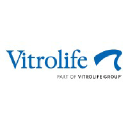Companies
Discover all trending biotech companies
Discover all trending biotech companies

Company Research Platform
Annual Revenue
$ 340,000,000
Global Employees
1,120
This segment focuses on providing essential products used in IVF procedures, including culture media, cryopreservation solutions, and disposable labware. Research and development efforts are directed towards optimizing media formulations to improve embryo development and pregnancy rates. Technologies employed include advanced cell culture techniques and quality control processes to ensure product safety and efficacy. The consumables segment directly impacts patient outcomes by providing the optimal environment for gamete and embryo development, increasing the chances of successful fertilization and implantation. Vitrolife maintains a leading position in the consumables market through continuous innovation and a commitment to high-quality products. Future opportunities include expanding the range of specialized media and developing personalized solutions based on patient-specific needs.
The Technologies segment encompasses advanced equipment and systems used in IVF laboratories, such as time-lapse incubators, micromanipulators, and laser systems. R&D activities are focused on developing innovative technologies that improve workflow efficiency, enhance embryo selection, and minimize environmental stress. These technologies leverage sophisticated imaging techniques, precise robotic control, and automated data analysis. The Technologies segment directly contributes to improved patient outcomes by enabling embryologists to make more informed decisions and optimize laboratory procedures. Vitrolife's time-lapse technology, for example, allows for continuous monitoring of embryo development without disturbing the culture environment. Future growth potential lies in integrating artificial intelligence and machine learning algorithms to further enhance embryo selection and improve IVF success rates.
This segment provides genetic testing services for preimplantation genetic testing (PGT) and other reproductive genetic analyses. Research and development efforts are centered on developing more accurate and comprehensive genetic screening methods. Technologies used include next-generation sequencing (NGS) and advanced bioinformatics tools. The Genetics segment plays a crucial role in identifying embryos with chromosomal abnormalities or genetic disorders, enabling clinicians to select healthy embryos for transfer and reduce the risk of miscarriage or genetic disease. Vitrolife's acquisition of Igenomix has strengthened its position in the genetics market. Future opportunities include expanding the range of genetic tests offered and developing personalized genetic profiles to guide treatment decisions.